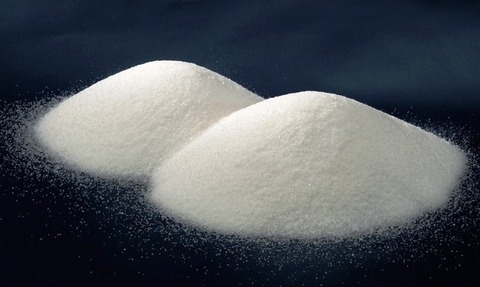Salt-infused cancer treatment possible
12 Aug 2014

A synthetic molecule designed to kill cancer cells with salt and chloride ions has been developed.
Researchers from the University of Southampton, UK, alongside an international team of scientists, have developed an artificial molecule that carries sodium and chloride ion to cancer cells - effectively causing them to self-destruct.
Details of the study have been published in the journal Nature Chemistry.
According to the researchers, these synthetic ion transporters could pave the way for new anti-cancer drugs, while also benefiting those with cystic fibrosis.
“This is exciting because it points the way towards a new approach to anti-cancer drug development
Co-author Jonathan Sessler
“This work shows how chloride transporters can work with sodium channels in cell membranes to cause an influx of salt into a cell. We found we can trigger cell death with salt,” said study co-author Phillip Gale.
In the human body, cells maintain a stable concentration of ions inside their cell membranes. However, a disruption of this balance can cause cells to go through apoptosis - a form on ’programmed death’.
When a cell becomes cancerous, however, it changes the way it transports ions across its cell membrane, thereby blocking the way it would naturally self-destruct.
To overcome this, a research team at the University of Texas, US created a synthetic ion transporter that binds to chloride ions.
According to the US researchers, the chloride transporter used the sodium channels that naturally occur in the cell’s membrane, bringing sodium ions ’along for the ride’.
Gale’s team were then able to demonstrate how the ion transporters were effective in a model system using artificial lipid membranes.
The final part of the research was conducted by scientists at Yonsei University, South Korea who were able to show that these molecules promote cell death in cultured human cancer cells.
According to the Yonsei team, one of the key findings was that the cancer cell’s ion concentrations changed before apoptosis was triggered, rather than as a side effect of the cell’s death.
“We have thus closed the loop and shown that this mechanism of chloride influx into the cell by a synthetic transporter does indeed trigger apoptosis,” said Jonathan Sessler, co-author from the US research group.
“This is exciting because it points the way towards a new approach to anti-cancer drug development.”
Unfortunately, the researchers have found that the artificial molecule molecule triggers programmed cell death in both cancerous and healthy cells. To have any success as a cancer therapy, the researchers will have to develop a version of the chloride transporter that binds only to cancerous cells.
Professor Gale told LaboratoryTalk that there are two possible options to combat this.
“Firstly, we can attach a molecule that targets cancer cells specifically to the transporter to work as a ’magic bullet’ that will take the transporter selectively to tumours.
“The second approach is to develop whole new classes of transporter with different molecular structures and then test these systems for cancer versus healthy cell selectivity using cell viability studies,” Gale said.
Fortunately, developing new classes of transporter is precicesly the type of work Gale and his group undertakes.

